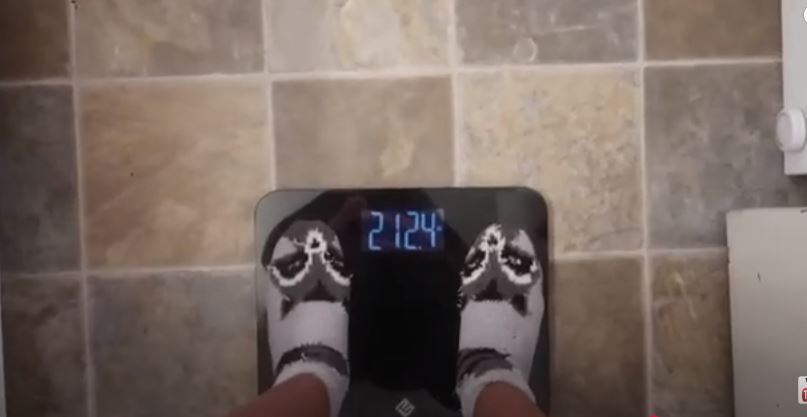For many people, the thought of losing weight after having their wisdom teeth removed may seem surprising. The question, “Can you lose weight after getting your wisdom teeth taken out?” comes up often. Yes, it is possible, but it’s important to understand that this weight loss is typically temporary and minor.
Changes in diet, pain, and medications can all contribute to this weight loss. Let’s take a closer look at why this can happen and what you should do to manage it.
Why Do People Lose Weight After Having Their Wisdom Teeth Taken Out?
After wisdom teeth removal, your body undergoes several changes, many of which affect your eating habits. Doctors generally recommend a soft-food diet after surgery, which can include mashed potatoes, smoothies, and soup. These foods are usually lower in calories than your regular meals, and as a result, this temporary change in food choices can lead to a slight reduction in calorie intake and minor weight loss.
Pain and discomfort from the surgery also play a big role. When your mouth and jaw are swollen and sore, it becomes difficult to eat. This discomfort often leads to a reduced appetite, which means you’re eating less. Additionally, some post-surgery medications, like opioids or antibiotics, can also reduce your appetite and make it harder to stick to a regular eating routine.
How Long Does It Take to Lose Weight After Wisdom Teeth Removal?
It’s normal to lose a few pounds in the first few days or weeks following surgery, but this weight loss usually doesn’t last long. As you heal and your swelling goes down, your appetite should return to normal. Typically, the weight loss you experience is temporary and will reverse as you begin eating a more regular diet.
Managing Weight Loss and Nutrition After Wisdom Teeth Extraction
If you’re concerned about losing weight after wisdom teeth removal, focus on eating a nutritious, well-balanced diet during recovery. Here’s how you can ensure you’re getting the calories and nutrients you need:
| Tip | Details |
|---|---|
| Choose Nutrient-Rich Soft Foods | Opt for smoothies, mashed potatoes, yogurt, and scrambled eggs—these are easy on your mouth and full of vitamins and minerals. |
| Eat Smaller, More Frequent Meals | Eating smaller meals more often can help you maintain calorie intake without feeling too full or uncomfortable. |
| Stay Hydrated | Drink plenty of water, as well as nutrient-rich liquids like smoothies or protein shakes, to stay hydrated and boost calorie intake. |
| Monitor Your Weight | Keep track of your weight to ensure you are getting back on track. If weight loss continues, consult your dentist or doctor. |
When Should You See a Doctor About Losing Weight?

While some weight loss is normal, losing a significant amount or struggling to eat can signal a problem. You should seek medical advice if:
- You lose more than 5-10% of your body weight.
- Pain or discomfort makes it difficult to eat or drink.
- You experience extreme tiredness, dizziness, or muscle weakness, which may indicate dehydration or malnutrition.
Tips for Keeping Your Nutrition in Check During Recovery
Here are some dietary tips to help you get the nutrition you need while maintaining weight and supporting your recovery:
Eat Protein-Rich Soft Foods
Include protein-rich options like scrambled eggs or smoothies with protein powder to help maintain muscle mass and support healing.
Add Healthy Fats
Incorporate healthy fats like avocados, soft cheeses, and nut butters to help increase your calorie intake without causing discomfort.
Include Fiber-Rich Foods
Fiber-rich foods like pureed fruits and vegetables or smoothies with greens can provide the necessary fiber your body needs during recovery.
Sample Meal Plan
Here’s a sample meal plan to help you maintain nutrition while you recover:
- Breakfast: Smoothie with yogurt, protein powder, banana, and spinach.
- Mid-Morning Snack: Applesauce or mashed avocado.
- Lunch: Creamy soup (e.g., butternut squash or tomato) with cottage cheese.
- Afternoon Snack: Greek yogurt with honey.
- Evening Snack: Pudding or a protein shake.
- Dinner: Soft-cooked salmon or shredded chicken.
Keeping meals small, nutrient-dense, and easy to eat will ensure that your body gets the calories and nutrients needed for proper healing.
Conclusion: Should You Be Worried About Losing Weight After Wisdom Teeth Removal?
Losing a small amount of weight after having your wisdom teeth removed is generally nothing to worry about. The weight loss is typically temporary, caused by changes in diet, pain, and medications. By focusing on a healthy, nutrient-rich diet and staying hydrated, you can manage this weight loss effectively.
However, if the weight loss becomes significant or persists for too long, it’s essential to consult your healthcare provider to ensure proper recovery. Once your body has healed, your appetite should return to normal, and you can resume eating normally.
For more details on post-surgery recovery, check out the Cleveland Clinic.
Disclaimer: This article is for informational purposes only and should not be considered medical advice. Always consult with a qualified healthcare professional for personalized guidance regarding your recovery after wisdom teeth removal.